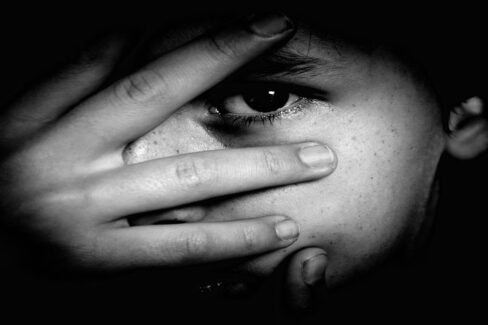What Does It Mean To Be A Man?*
Lila asked me to write an article on rape – but I am modifying her request slightly and instead examining the reasons that turns a boy into the rapist. It is not about sex- it is about the lack of empathy for another, the objectification of the victim, the need to feel powerful and a misunderstanding of what constitutes consent.
Rape is common in war or when there is an economic crisis or high unemployment, but I want to look at the emotions that leads a teenager down this path.
In the past, there have been set gender roles where men were the providers and protectors and women stayed at home and attended to the domestic duties and the nurturing of children. However, in the modern world, women rightly have the opportunity to educate themselves and earn a living outside of the home.
Though women have had to fight really hard for equal rights in the workplace, a lot of women now can earn as much or even more than male colleagues in almost all occupations and are no longer financially dependent on their partners. As a result, the traditional gender roles have become blurred and some men feel threatened by it.
Traditionally male children are also encouraged to hide their vulnerability and not express emotions like sadness or fear.
Furthermore, children in the past knew what mothers did- cooking, ironing, housework and childcare and girls’ toys often reflected this role. For most boys however, there was no real role model unless their father was a doctor or soldier or bus driver. All they knew was their dad left for the office in the morning and so their toys often were fantasy based. So, while girls played with dolls, they played at being Cowboys vs Native Americans and shooting each other.
With divorce becoming more prevalent there is very often no proper male model around. So while girls tend to communicate and share concerns with other girls, boys often turn to influencers like misogynistic Andrew Tate to discover what is expected of them as they struggle to balance their feelings of aggression with being sensitive. A lot of them learn to become emotionally detached and suppress their emotions.
Influencers like Andrew Tate take the place of the absent healthy role models as he is rich, outwardly confident and tough. However, all that his misogynistic ideas portray is the reinforcement of male dominance in relationships and never showing emotional vulnerability. Tate’s idea of discipline and self improvement are valid, but his beliefs about women and gender roles are toxic.
Gangs too provide emotionally neglected children with a surrogate family. It is our parents who provide us with our value systems. When this is missing for whatever reason, gangs provide these lost children with their own version of order and predictability. They promote a masculine identity that emphasises dominance, toughness and fearlessness while ignoring kindness, empathy and a sense of responsibility. Gangs demand loyalty and in return offer protection from danger which in some deprived areas is a very real need. Furthermore, crime leads to making money quickly and this too is attractive to a child coming from an impoverished background. Gangs tend to objectify women and treat them as chattels often using rape as retaliation against rival gangs or as an initiation rite.
In schools, girls do better at exams than boys and they go on to do better in the world outside. Teachers tend to favour those who do well and as a result boys, especially in deprived areas, feel marginalised and see girls as the enemy. It also makes them feel worthless.
Another problem that arises with the advent of social media is that children are exposed at a very young age to pornography. One of my former clients was horrified to find her 8 year old grandson had been exposed to hard pornography which resulted in him becoming traumatised and needing therapy.
Pornography often depicts women as submissive and this gives young boys an impression that women enjoy coercive behaviours and gives them confusing ideas about consent. It portrays women not as people but as being there for the sole purpose of satisfying male desire. When young men try what they are exposed to with their partners they are often rejected and in some cases, the ensuing frustration leads to rape and abuse. Pornography desensitises them to violence which then becomes a part of their arousal.
Rape and misogynistic viewpoints are not something that is new. It has existed since time immemorial, but as Professor Salter says, we do not record the incidences of sexual harassment and just classify it as bullying. In order to address the problem, we need to call it out when it happens. Recently there was an excellent Netflix programme called Adolescence where a 13 year old boy killed a young girl and gangs in the UK have been found to be grooming young boys to abuse girls.
Changing this mindset is not easy. It requires the following commitments from society.
- Open communication where both sexes are taught to respect each other, understand the concept of consent in healthy relationships, and in cases where there is no father figure, finding a healthy alternative role model in perhaps a brother or uncle or family friend.
- Teachers in school not focusing primarily on girls who are doing well, but encouraging both sexes to work together on joint projects.
- Encouraging volunteering so they can get in touch with emotions and work with the vulnerable, thereby developing empathy.
- Parents making time not only for the child’s practical needs but also meeting their emotional needs.
- Encouraging boys to talk and express their fears without judgement in safe environments.
All of the above depends on the cultural and social atmosphere that exists and also on the financial and emotional status within the family.
Maybe Japan has the right idea. I read somewhere they don’t test their children for academic prowess until age 10, instead the early years are spent learning how to respect others and behave responsibly. As a result, they have lower reported cases of rape.
However, it does well to remember that rapists are not born they are moulded by circumstance.
*This article was written by ‘The Common Sense Therapist’, a retired psychologist who lives overseas and wishes to remain anonymous. She has many decades of experience in dealing with various people and aspects of psychology, and is a great source of enlightenment on many things in life.









